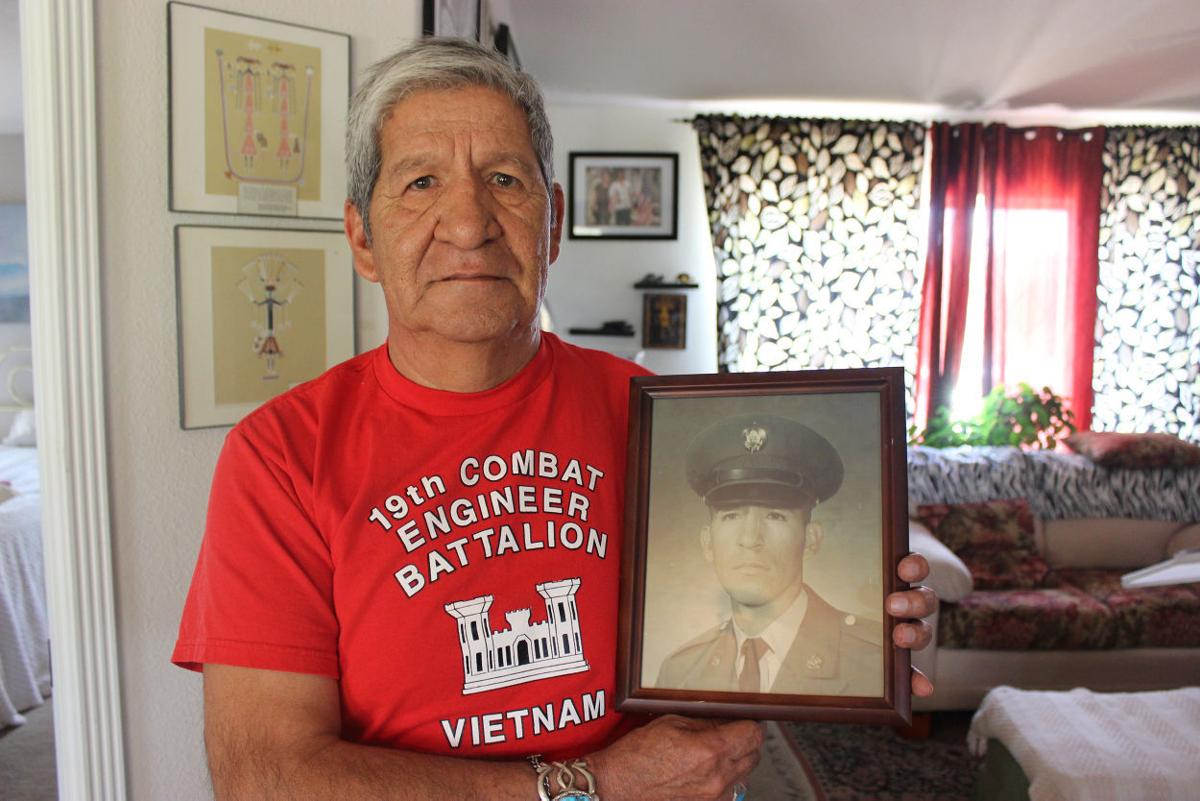Valentino Cruz knew to be careful where he walked as he waited on a hilltop in Vietnam with a squad of Army Engineers.
Cruz’s squad leader walked a short distance in the morning hours to urinate after the soldiers spent the night on the hill in early July 1969. The sergeant stepped off the path and onto a booby trap.
Cruz, who was just feet away, remembers seeing a bright flash and then a “spray of red” before being knocked down.
“He had about 45 days until he was supposed to go home,” Cruz said.
Cruz, 66, points to the event as something that scarred him both physically — he suffered a traumatic brain injury — and psychologically.
Cruz, a Tucson native who moved to Douglas before high school, was drafted into military in 1968 when he was 18 years old.
He reported to the Bisbee courthouse where he and other draftees were bused to Phoenix. There, he was handed a dime and told to call his parents to tell them he was going to basic training.
Cruz was placed in the 19th Combat Engineer Battalion and shipped off to Vietnam for a tour of duty.
“It was a year of hell,” Cruz said.
In Vietnam, he witnessed a great deal of carnage as he fought in the central highlands of the country and worked to clear mines with other engineers.
Cruz was discharged in 1974 and — with the help of the G.I. Bill — he attended community college in Monterey, California where he studied horticulture and agronomy.
He took part in reforesting a golf course in the Pebble Beach area and worked on other preservation efforts in the Monterey area.
Cruz returned to Tucson in 1999 when his mother became ill and he stayed in the area.
Cruz says he has been suffering from multiple medical conditions in recent years including Hepatitis C and diabetes, which he attributes to his close contact with the chemical Agent Orange during the war.
The diabetes, which has put Cruz in diabetic comas, has had a particularly negative effect on his well-being, said his wife Susan Cruz. “It hinders him in whatever he tries to do,” she said.
Cruz also suffers from post-traumatic stress disorder and says he continues to have nightmares from the war. He meets with a group for PTSD veterans every week at the Southern Arizona Veterans Administration hospital.
Now, Cruz says he hopes to put one of his traumatic experiences from the war to rest.
Cruz is planning to go on a Freedom Flight to Washington, D.C. soon to visit the Vietnam Veterans Memorial. On the wall, he wants to find the name of the soldier who stepped on the booby trap that summer in the war: Sgt. John Lindberg.
Cruz, who is part Pima, plans to take an arrow and Apache Tears, small obsidian stones — 23 of them because Lindberg was 23 when he died — to lay at the memorial for him.
“I really think this is going to be beneficial to me,” he said. “I’m going to still have the nightmares, but I’m going to be able to recognize nightmares where it’s a memory and it’s no longer happening to me. This will lay it to rest.”





